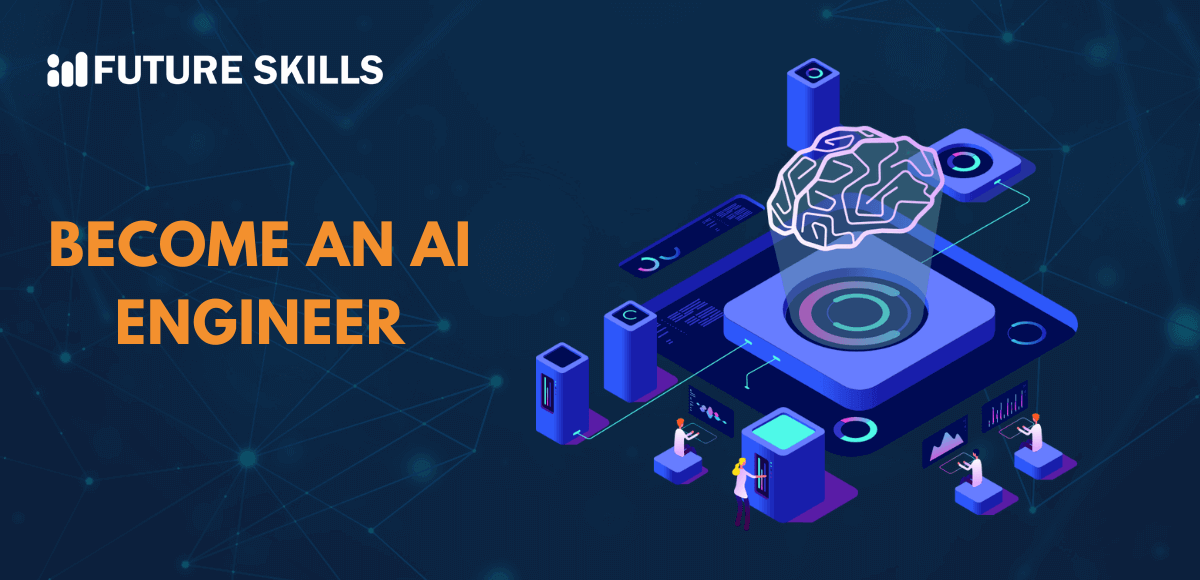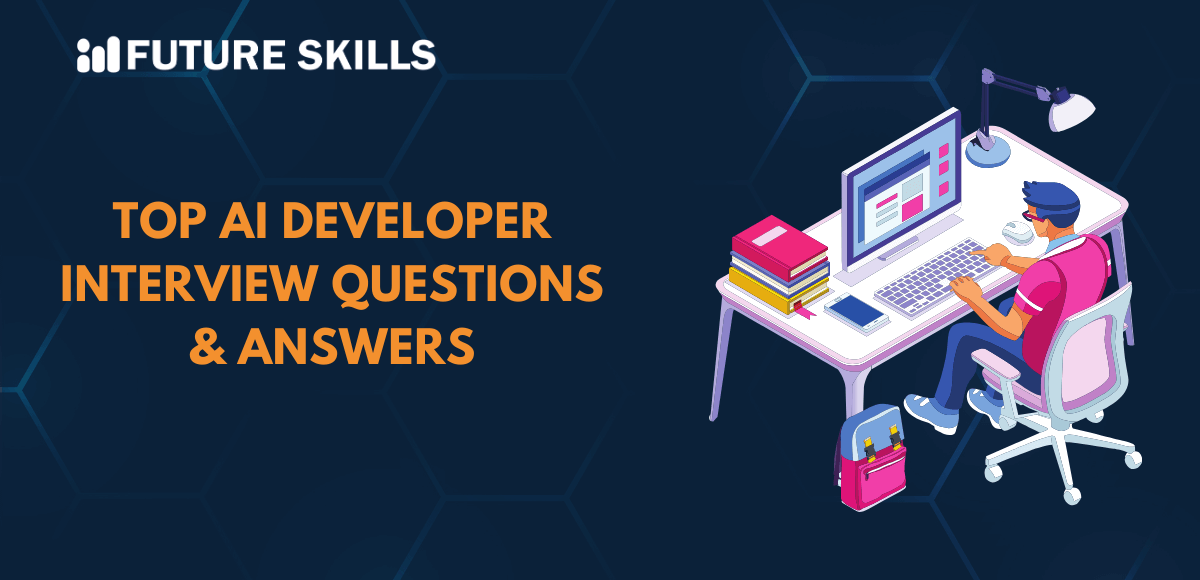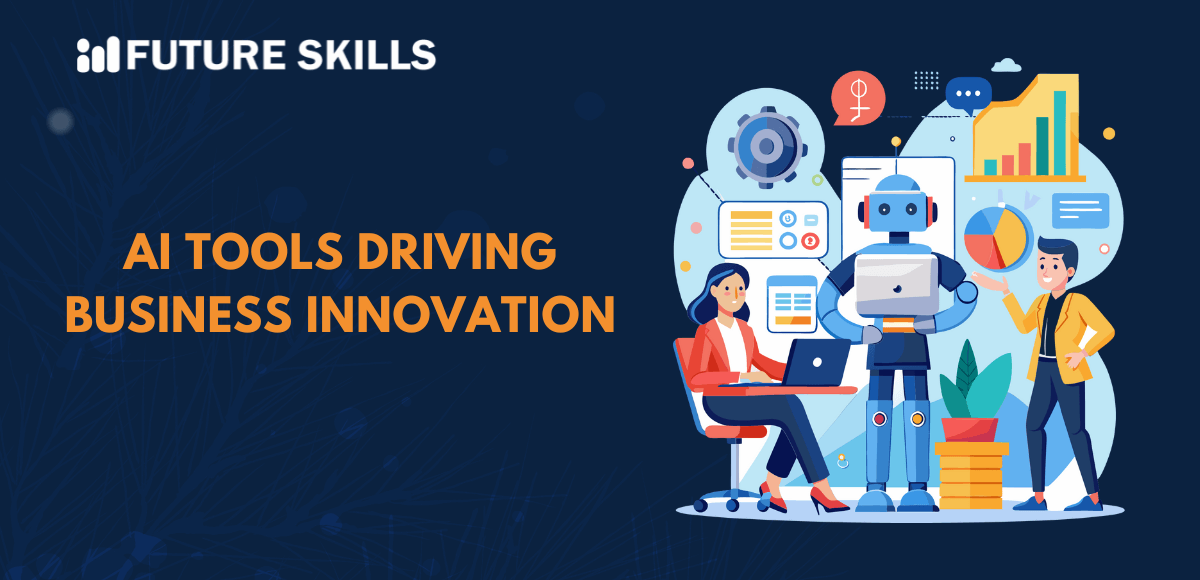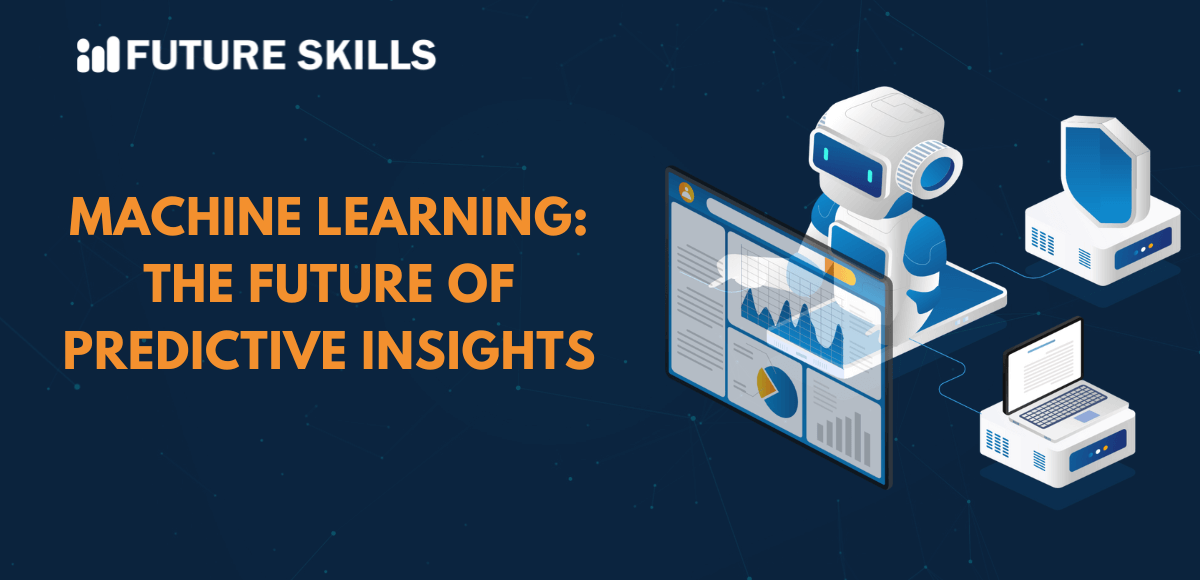Artificial intelligence has emerged as one of the groundbreaking trends in the world of technology. It plays a vital role in shaping the new job markets with the introduction of new job roles. For example, being a prompt engineer, Artificial intelligence researcher, and ChatGPT expert are some of the prominent job roles that give you an opportunity to work as an AI professional. However, the AI engineer career path is the most lucrative option for anyone who wants to begin a career in AI or aims to become an AI engineer.
If you search for artificial intelligence engineer jobs on LinkedIn, you will find more than 30,000 jobs. It clearly indicates that the demand for artificial intelligence engineers is increasing at a consistent pace. On top of this, big companies such as Google, Microsoft, IBM, Facebook, and others want skilled AI engineers in their teams. Let us find out how you can become an artificial intelligence engineer in 2024.
Embark on a transformative journey into AI, unlocking career-boosting superpowers through our Certified AI Professional (CAIP)™ Certification program.
Understanding the Role of AI Engineers
The first thing you need to learn about AI engineering is the role of an artificial intelligence engineer. You must know what an artificial intelligence engineer is before you seek the best practices to become one. Anyone aspiring to become an AI engineer must note that an AI engineer is a professional who develops applications by using pre-defined LLMs and other machine learning models. Artificial intelligence engineers must combine the skills of software developers, data engineers, and data scientists.
As an AI engineer, you would also develop machine learning algorithms and deep neural networks to extract meaningful business insights according to business goals. On top of it, an AI engineer is also a problem solver with the capability to navigate the tricks of ML algorithm implementation and software development.
Build ChatGPT skills and take the first step to becoming superhuman with our free ChatGPT and AI fundamental course
What are the Responsibilities of AI Engineers?
The next important aspect in a guide to artificial intelligence engineering careers is the responsibility of artificial intelligence engineers. You can find out how to become an AI engineer only after you learn your responsibilities for the job. The primary responsibility of an AI engineer revolves around the design and implementation of artificial intelligence models by leveraging the power of data science and machine learning. AI engineers work in collaboration with the data science team to translate theoretical data science concepts into practical applications for real-world scenarios. Here is an outline of the most common responsibilities of artificial intelligence engineers.
- Development of AI models capable of processing and learning from large repositories of data to extract meaningful insights.
- Conducting complex network programming and statistical analysis.
- Deployment of AI models and systems in production environments.
- Implementation of effective data-sharing techniques that focus on data accessibility.
- Maintaining AI systems with regular updates and frequent maintenance to ensure continuous improvement of the systems.
The responsibilities of AI engineers might appear similar to that of software engineers. However, artificial intelligence engineers are different as they can work with neural networks, highly complex data structures, complex machine learning models, and deep learning algorithms.
Enroll now in the AI for Business Course to understand the role and benefits of AI in business and the integration of AI in business.
Why Should You Pursue a Career in AI Engineering?
The detailed impression of the responsibilities of an AI engineer shows that you would have to work hard to achieve the position of an AI engineer. Are you prepared to invest your time and efforts in learning the skills required to address AI engineer responsibilities? Before seeking the answers to such questions, you might wonder about the rewards of a career in AI engineering.
Does an AI engineer roadmap offer opportunities for growth in future? The continuously evolving technology landscape has also spurred changes in the scope of artificial intelligence engineering. With the adoption of AI systems in different industries, artificial intelligence engineers can have the flexibility of working in the sector of their choice.
While flexibility is a major advantage for AI engineers, the financial rewards of AI engineering will always serve as the best motivation for aspiring AI engineers.
Glassdoor suggests that the average annual salary of artificial intelligence engineers in the US can vary from $124,000 to $193,000.
Another notable job search platform, Indeed, has reported that the average annual salary of AI engineers is $110,000.
ZipRecruiter points out that the average annual salary of AI engineers in the US is $101,752, while senior artificial intelligence engineers can get $126,557 per year. On top of that, ZipRecruiter also suggests that certain companies offer $300,000 to $400,000 for artificial intelligence engineers alongside equity options.
Excited to understand the crucial requirements for developing responsible AI and the implications of privacy and security in AI, Enroll now in the Ethics of Artificial Intelligence (AI) Course.
What are the Skills You Need to Become an AI Engineer?
Any roadmap for becoming AI engineers would misguide aspiring candidates without awareness of essential skills required for artificial intelligence engineering jobs. A clear impression of artificial intelligence engineer skills can help you identify the learning resources that you would need to earn the skills. You would need a mix of technical and non-technical skills to pursue a career in artificial intelligence engineering.
-
Technical Skills
The most obvious requirements for artificial intelligence engineering jobs point to the technical skills required for the job. You would need skills in different areas, such as machine learning, NLP, and computer vision, to ensure success as artificial intelligence engineers.
Machine learning is one of the essential skills for AI engineers as they must have expertise in developing, testing, and implementing machine learning models in AI systems.
Artificial intelligence engineers must also have in-depth knowledge of statistics and linear algebra to develop a better understanding of data patterns. It can help them arrive at accurate predictions.
Another important technical skill required to become an AI engineer is programming. You must know how to work with programming languages suited for AI engineering, such as Python, Java, or R.
The list of technical skills required for AI engineering also includes computer vision and natural language processing. Artificial intelligence engineers must have strong command over NLP to work with systems that interact with humans in natural language. On top of it, computer vision also serves as a vital addition to the toolkit of an artificial intelligence engineer for projects that involve processing and analysis of images with AI.
-
Non-Technical Skills
Non-technical skills or soft skills are also crucial requirements for building your career in AI. Some of the most important skills required to become AI engineers include problem-solving skills, communication skills, business acumen, teamwork, and creativity. Problem-solving is one of the top artificial intelligence engineering skills that helps create effective solutions for pressing business concerns. On top of that, an artificial intelligence engineer must have the ability to communicate and work well with all the teams while working on AI projects.
Most importantly, artificial intelligence engineers must also have business acumen to understand how to implement their skills in business. It helps an AI engineer evaluate the feasibility of AI solutions for businesses from a technological and commercial perspective. In addition, artificial intelligence engineers must also have creativity that empowers them to work on continuous innovation. Artificial intelligence engineers with a knack for creativity can come up with exclusive ways to leverage artificial intelligence to solve business problems.
How Can You Become an AI Engineer?
The information about roles and responsibilities of artificial intelligence engineers, alongside the career benefits and skill requirements, provides deep insights into the career of an artificial intelligence engineer. However, the question of how to become an AI engineer still remains unanswered. How will you learn the skills required for artificial intelligence engineering jobs? Can you become professionally competent in addressing the job responsibilities of artificial intelligence engineers? Yes, you can! All you need to do is follow the recommendations of experts to pursue the roadmap for careers in artificial intelligence engineering.
-
Earn the Educational Qualifications
The first step in any AI engineer roadmap would focus on educational qualifications for a career in artificial intelligence engineering. You must have a bachelor’s degree in a discipline such as software development, computer science, or data science. The important topics in such Bachelor’s degree programs help you build your foundations for a career as an artificial intelligence engineer. Subsequently, you must complete a Master’s degree in artificial intelligence to enhance your knowledge and achieve specialization in AI.
-
Specialize in Machine Learning
The next important requirement for a career in artificial intelligence engineering is in-depth knowledge of machine learning. You can pick any artificial intelligence engineer career path and find out how machine learning is an essential requirement in artificial intelligence engineering. Aspiring candidates must familiarize themselves with the different variants of machine learning techniques. You must develop an awareness of basic ML algorithms such as logistic regression, decision trees, and linear regression.
-
Hone Your Expertise in Statistics
Knowledge of the fundamentals of statistics is essential to understanding the workings of ML algorithms. You can become an AI engineer with the skills to develop ML models by using your foundation in statistics. It is important to learn about the different variants of probability distributions, including sampling and hypothesis testing. Expertise in statistics can help artificial intelligence engineers achieve the best results in data pre-processing and feature selection.
-
Familiarize yourself with Deep Learning
Another crucial step in the journey of becoming an AI engineer focuses on deep learning. You must have an in-depth understanding of deep learning algorithms that can help you develop AI applications. Deep learning is one of the important skills for AI engineer roles and focuses on developing fluency in neural networks. Aspiring candidates must emphasize important deep learning algorithms such as convolutional neural networks, recurrent neural networks, and artificial neural networks.
-
Professional Training Courses
You might wonder about the ideal process to learn all these technologies for artificial intelligence engineer roles. Interestingly, you can rely on professional training courses to guide you through the fundamentals of AI and machine learning. The internet is a treasure trove of training courses on different topics, including programming, machine learning, AI, and deep learning. Furthermore, you can also discover training courses on prompt engineering, ChatGPT, and other topics related to AI.
-
Achieve an AI Certification
The most important requirement to pursue a career as an artificial intelligence engineers is a recognized artificial intelligence certification. You must have proof of your AI engineer skills that can help employers identify how your expertise can help them. On top of it, certified AI engineers enjoy many other career benefits, such as higher salaries. You should choose professional AI certifications that cover diverse topics related to artificial intelligence. It is also important to choose certifications by platforms that have earned credibility for helping professionals pursue career development in AI.
-
Never Undermine Practical Experience
Anyone aspiring to become an AI engineer must prioritize practical experience above everything. Irrespective of the skills you learn or the certifications you achieve, you can be a good artificial intelligence engineer only when you know how to implement your skills. Therefore, you must have hands-on experience in working with Python, R, and important packages such as PyTorch, Keras, and TensorFlow. Furthermore, you must also learn the best practices for deploying AI models in production with popular platforms, such as Google Cloud, Microsoft Azure, and AWS.
Final Words
The guide on how to become an AI engineer showed every important information you need to build a successful career. Artificial intelligence engineering is one of the most lucrative roles in the AI job market. An artificial intelligence engineer can find job prospects at top companies such as Google, Microsoft, or IBM with rewarding salary packages. However, you must choose the best professional training resources and certifications to achieve your career goals.






